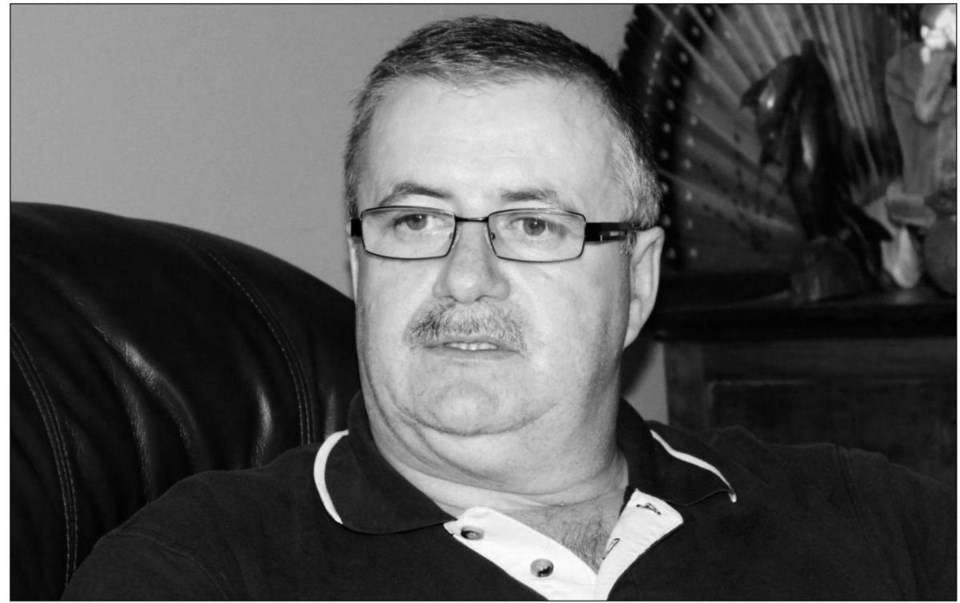The legal fight facing a Newfoundland oil worker who was shot and taken hostage in Nigeria is a cautionary tale about the big risks that come with big money on overseas rigs, says his lawyer.
Bob Croke of Torbay, N.L. is suing along with his former American coworker James Johnson for compensation after both were shot when militants boarded their rig in Nigeria on Nov. 8, 2010.
The men have filed claims in U.S. District Court in Louisiana that the ordeal has taken a long-term physical, emotional and financial toll.
They are seeking damages that won't be defined until their cases - expected to be jointly heard in a jury trial next summer or fall - proceed.
Lawyer Timothy Young is representing both men and has advised Croke not to speak publicly about the case. He said workers who leave Canada and the U.S. should be aware of oil company tactics to deny legal responsibility when something goes wrong.
"They need to see who they're being paid by," Young said from New Orleans, where his firm specializes in offshore claims. "They need to realize that even though they feel the relationship is entirely within North America, the company may think otherwise if there's an injury overseas.
"It's not the same story as it would have been 20 years ago in the Gulf of Mexico. Now the companies are saying: 'Well, wait a minute. You were overseas.
This is a whole different case and we can fight it in different ways.' "
Defendants in the CrokeJohnson case include PPI Technology Services, the Houston-based company that the workers say hired and supervised them; rig owner Transocean Ltd., the world's largest offshore drilling contractor based out of Switzerland; and Afren PLC, the Londonbased oil company that had contracted the rig.
Croke, a directional drilling supervisor, was shot in the left foot before he was hauled off the rig along with two French workers, two Americans and two Indonesians who spent 10 harrowing days held at camps in the sweltering jungle. They were freed in what Croke has described as a brokered deal involving foreign and local hostages that did not involve a ransom.
Johnson was airlifted off the rig after he was shot in the knee and spent more than five months in a London hospital, say court documents. Statements of defence have not yet been filed for the Croke claims, Young said.
But in the Johnson case, PPI Technology Services filed a motion to dismiss on the basis that Johnson was not, in fact, its employee.
Court documents outline the company's argument that it owed Johnson no "duty of care with respect to operations aboard the rig" because he was "an independent contractor" of PSL, an entity in Belize with which PPI Technology Services had contracted.
Johnson submitted to the court a long series of emails between himself and staff at PPI Technology Services during his hiring. At one point, he specifically asked about PSL because it appeared on a contract he was sent to sign.
U.S. District Judge Sarah Vance, in denying the company's motion to dismiss, noted that Johnson was told: "We just run all our people through Belize."
Vance concluded there is evidence "that PPI personnel directed and supervised Johnson, hired and fired him, and led him to believe that he was indeed a PPI employee [notwithstanding his contract with PSL]."
She also denied PPI's bid to dismiss the case on the basis that it should be heard in Nigeria.
Vance ruled that the company failed to demonstrate that an alternative forum in Nigeria is available to resolve the dispute.
"Indeed, PPI has indicated its refusal to submit to the jurisdiction of a Nigerian court," she said in the decision dated May 22.
A request for comment from PPI Technology Services was not answered.
Transocean spokesman Guy Cantwell said the company does not comment on litigation. And Afren spokesman Mark Antelme said in an email he would not comment specifically on legal action. "We would, however, vigorously defend any suggestion that we had fallen short of our duty of care towards any of our employees," he said. "Health and safety is a priority across all Afren activities."
Young argues that both Croke and Johnson were negligently put in harm's way because of lax security.
"These companies absolutely know they're at risk for this," he said of multiple hostage-takings and attacks on oil workers off the Nigerian coast.
"They brought this rig in way too close. They didn't have proper security and they're fortunate it wasn't much worse than the catastrophe that it was."
None of the claims involving the Croke or Johnson cases has been proven in court.
Young said he expects PPI to try the same tactic regarding Croke's employment status, along with what he describes as other stall strategies.
"I think it's atrocious that they would even suggest that ... these men would have to go back to Nigeria to file a suit. The money that these companies made off of these men did not stay in Nigeria."
Young has a quick response for those who say well paid offshore workers - six-figure salaries are not unusual - shouldn't take jobs overseas if they can't handle the risk.
"No one, for any amount of money, would go overseas with the expectation that they could be injured, maimed or killed."



